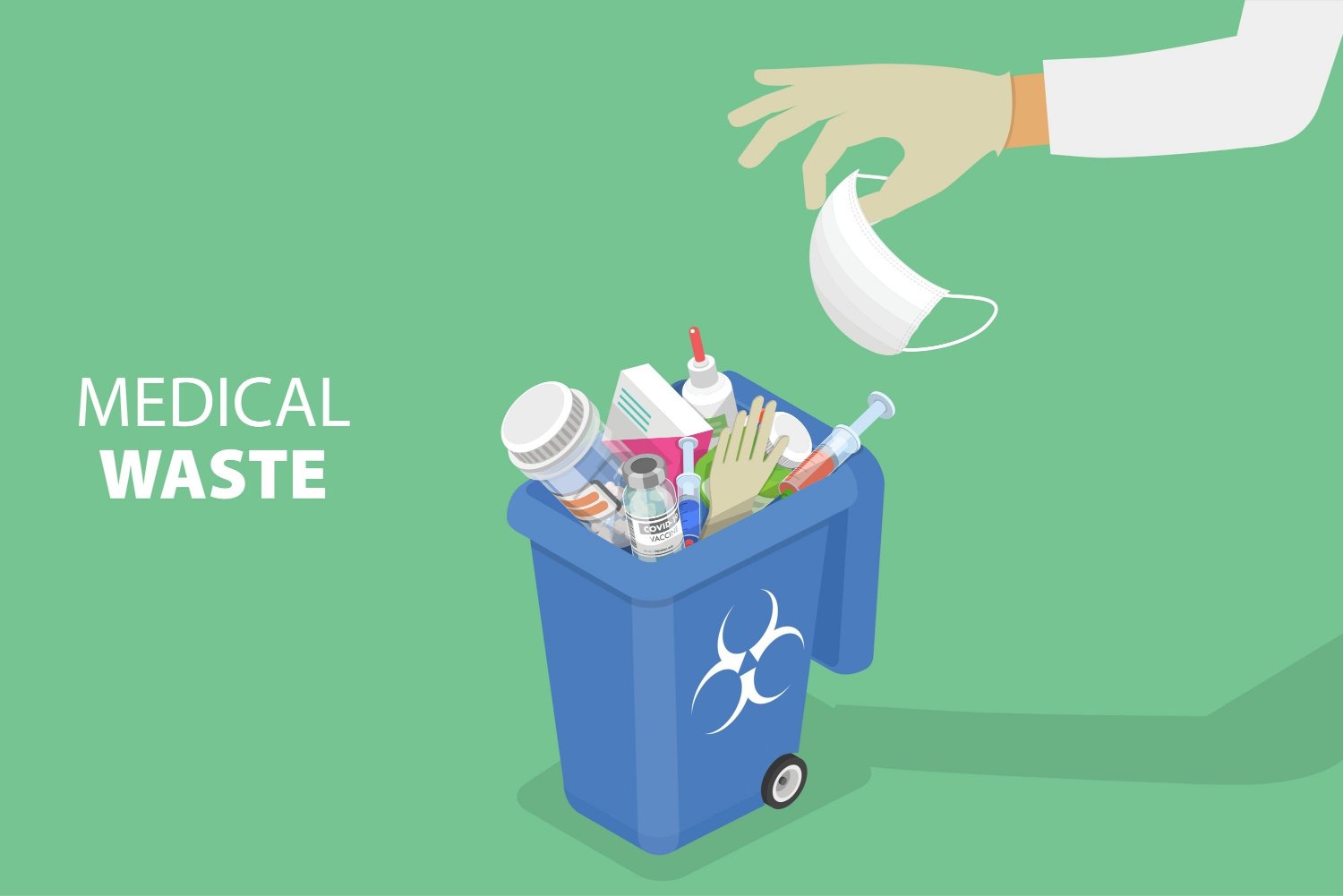Specialized Medical Waste Disposal Services: Your Option for Waste Administration
Wiki Article
Navigating Medical Garbage Disposal: Crucial Providers for Healthcare Facilities
Healthcare centers, whether large health centers or little clinics, are handed over with the obligation of handling, treating, and disposing of a large array of medical waste streams. Understanding the crucial services that sustain clinical waste disposal is not just a matter of compliance yet also a fundamental component in protecting public wellness and environmental wellness.Regulatory Compliance Assistance
For healthcare facilities, making certain regulatory conformity support is necessary to keep proper handling and disposal of clinical waste. Sticking to laws stated by organizations such as the Epa (EPA) and the Occupational Safety and Health And Wellness Management (OSHA) is vital to avoid environmental contamination, shield public health, and avoid potential lawful effects. Governing compliance assistance offers medical care centers with advice on exactly how to correctly segregate, store, transportation, and throw away different sorts of clinical waste in conformity with local, state, and federal guidelines. This support includes help in creating and implementing detailed waste monitoring strategies, carrying out regular staff training sessions, and carrying out audits to guarantee ongoing conformity. By partnering with regulative compliance professionals, healthcare facilities can stay up-to-date on evolving laws, minimize risks related to improper garbage disposal, and inevitably add to a more secure and extra lasting atmosphere for all.Waste Segregation Guidance

Healthcare facilities have to offer clear guidelines and training to personnel on just how to set apart waste efficiently. This consists of dividing basic waste from unsafe products such as sharps, contagious waste, drugs, and chemical waste. Color-coded containers, tags, and signs are typically made use of to assist in waste partition practices. Regular audits and tracking of waste segregation processes are vital to identify any concerns and make essential enhancements.
Collection and Transportation Services

Appropriate collection and transportation services are crucial parts of the clinical waste disposal procedure in medical care facilities. These solutions make sure that dangerous products are managed securely and in compliance with laws to secure both the environment and public wellness. Medical care facilities count on specialized waste administration companies to supply effective collection and transport solutions tailored to their demands.
Clinical waste collection entails segregating various types of waste at the point of generation, using color-coded bins or bags to distinguish between basic, dangerous, pharmaceutical, and other waste streams. Educated employees should execute this task to stop contamination and guarantee correct disposal. Once collected, the waste is transported in dedicated lorries furnished to handle dangerous products safely. These vehicles adhere to rigorous safety criteria and comply with designated paths to qualified treatment centers for disposal with techniques such as incineration, landfilling, or sanitation.
Treatment and Disposal Solutions
In the realm of clinical waste disposal for health care centers, after the essential stage of collection and transportation solutions, the emphasis moves in the direction of applying effective therapy my sources and disposal solutions. Therapy remedies typically include procedures such as autoclaving, which uses steam under pressure to disinfect the waste. This technique is generally made use of for transmittable waste that should be made non-hazardous before disposal. Another widespread treatment approach is incineration, where waste is subjected to high temperature levels in regulated setups to decrease its volume and get rid of virus.Disposal remedies encompass the final step in the clinical waste monitoring process. Recycling and resource healing are also getting traction as sustainable disposal options for specific kinds of medical waste materials.
Efficient treatment and disposal solutions are vital in ensuring compliance with policies and securing public health and the atmosphere. Medical care centers have to meticulously evaluate and pick ideal methods that align with their waste management goals and sustainability initiatives.
Team Training and Education And Learning

To successfully take care of medical waste disposal in healthcare centers, detailed personnel training and education play an important role in making certain adherence to regulative requirements and maintaining a secure environment. Correct training furnishes personnel with the expertise and abilities needed to take care of different kinds of clinical waste, segregate them properly, and package them securely for disposal. By enlightening employees on the threats connected with inappropriate handling of medical waste, facilities can minimize the chance of crashes, contamination, and governing infractions.

Conclusion
In conclusion, healthcare facilities rely upon essential medical garbage disposal solutions to make sure regulative conformity, correct waste segregation, risk-free collection and transportation, effective treatment and disposal, along with staff training and education and learning. These solutions play a vital role in maintaining the health and wellness of both healthcare employees and the general public, highlighting the significance of proper monitoring of clinical waste in medical care settings.For medical care centers, ensuring regulative compliance support is important to preserve appropriate handling and disposal of medical waste. Waste partition entails categorizing various types of clinical waste to make certain suitable handling, treatment, and disposal. This consists of dividing basic waste from unsafe products such as sharps, infectious waste, drugs, and chemical waste.Clinical waste collection includes segregating different kinds of waste at the point of generation, using color-coded bags or containers to identify between general, dangerous, pharmaceutical, and other waste streams.In the world of clinical waste disposal for medical care facilities, after the important phase of collection and transportation services, the focus changes in the direction of carrying out effective therapy and disposal services.
Report this wiki page